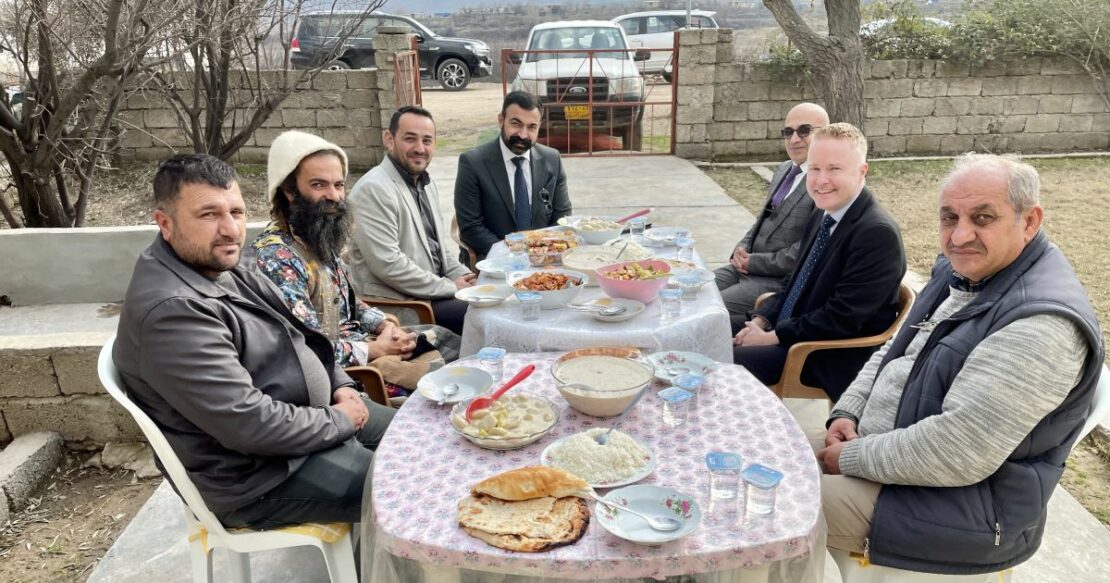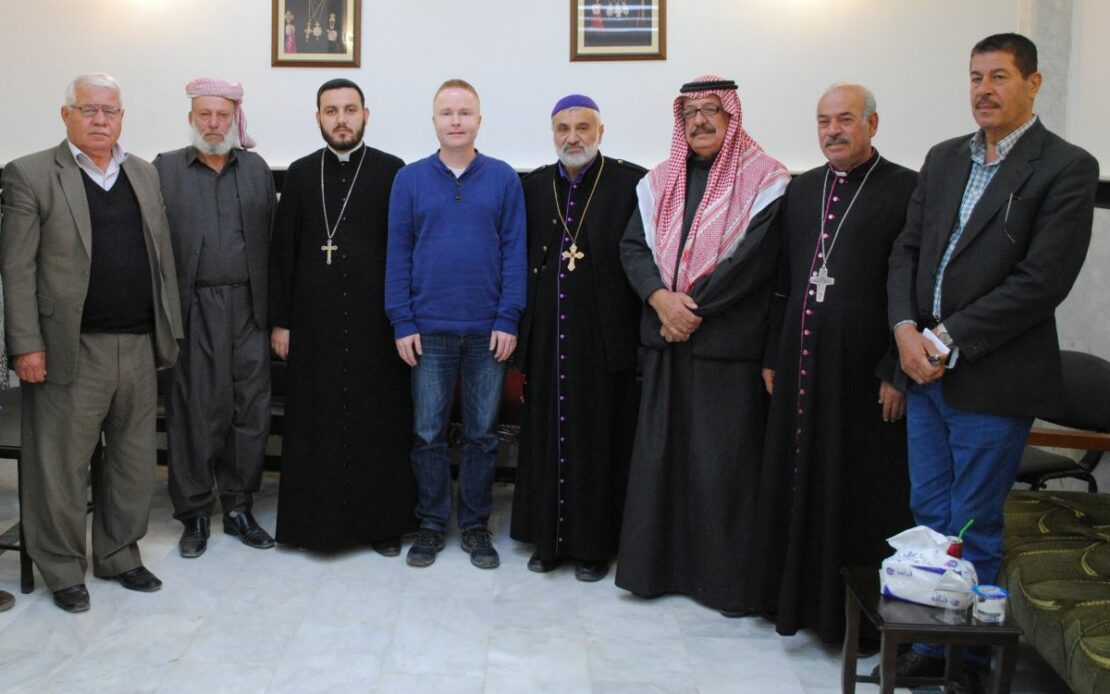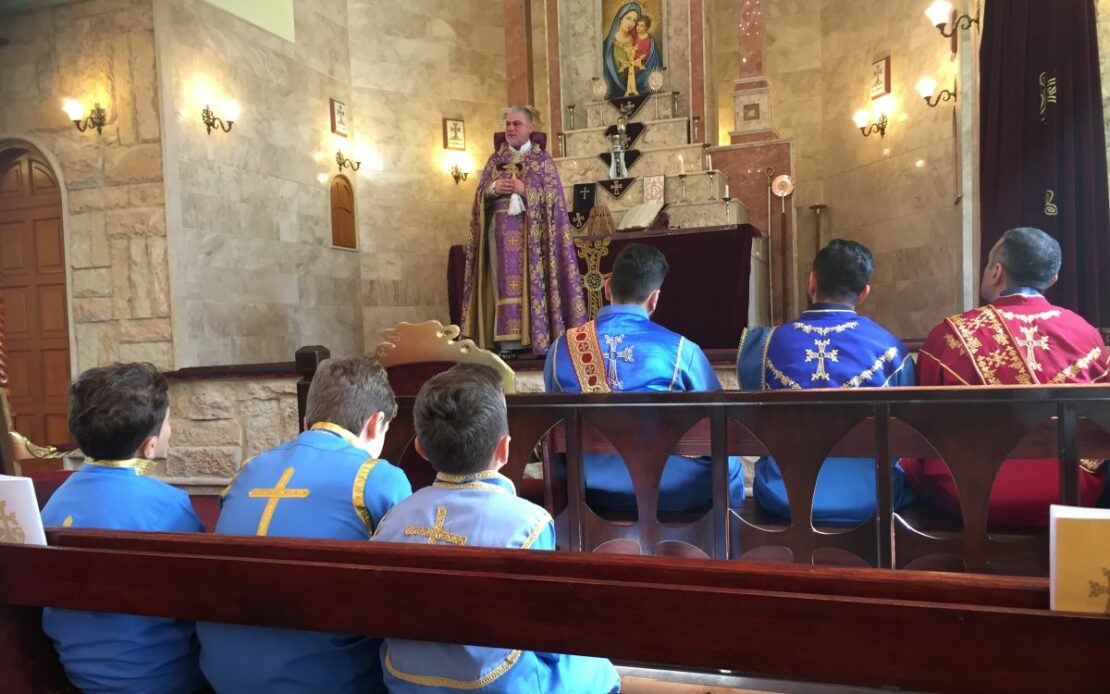Christians in Iraq: The bridge builders
A fascinating insight
By David Müller

Depending on the study, 75 to 80 % of the people who are persecuted worldwide because of their faith are Christians. In North Korea, Eritrea or the Gulf States, for example, they are at risk of intense persecution. What is the situation like for Christians in Iraq?
The situation is not comparable with the countries mentioned. Iraq is an old Christian heartland. As early as 92 A.D., a bishop was installed in Erbil. However, decades of war and not least the terror of the IS have led to an exodus of almost 90% of the Christians who have lived here for generations in recent years. The remaining 250,000, however, play a significant role for Iraq as a whole.
Christians as a minority in the Muslim state of Iraq
Iraq is a Muslim-majority state. It follows the Islamic culture. Its legal system is based mainly on Islamic law, the Sharia. This leads to discrimination against Christians. In concrete terms, this means that a Christian Iraqi does not have the same rights as a Muslim. Christians and members of other religious minorities, such as Yezidis, Bahai, Mandaeans, or Jews, are not equal citizens before the law.
Why support the Christians in Iraq?
“I wouldn’t necessarily say we feel ‘persecuted,’ but definitely ‘discriminated,'” says Emanuel Youkhana, founder and executive director of CAPNI, an Iraqi Christian relief agency. So it could be argued that Christians in Iraq do not need aid because they are not persecuted. However, this argument would be a fallacy and may miss the larger goal that the Christian community is striving to achieve: Iraq as a state based on the principle of citizenship and not on religious affiliation. In it, all citizens are equal.

For peaceful coexistence
The Christians in Iraq are working on just that. They think and act across denominations and religions. Their diaconal commitment is not aimed solely at their brothers and sisters in faith, but at all people. Why? “Because we are Christians!” says Youkhana, “We are motivated by our Christian values, reflecting them in programs and deeds to serve in the spirit of the Gospel.” This characterizes Christian thought and action like little else: Love and, through it, peace. Christians in Iraq see themselves as committed to the Gospel and as bridge builders to achieve peaceful coexistence for all.
Against the violence
To achieve this, the Iraqi spiral of violence must be broken. Oppressed minorities everywhere have a tendency to formally enclose themselves and isolate themselves from the majority. Through their diaconal approach, Christians build bridges – also to the majority society. This helps to break down mistrust. In addition, the Christian bridges also connect minorities with each other, such as the Yazidis or the Shabak, who live in the same region. What should be achieved: Reduction of prejudices and disadvantages, living together in the awareness of being people in the same country who share the same earth – and have done so for centuries – as well as healing the wounds of the immediate past.
Traumas of the past
These wounds are, among others, the traumas suffered by Christians. The awareness of having been mistreated or driven out by radicals, even having to witness family members being murdered, runs deep for some. Help is urgently needed here, because the Christian community does not want to continue to be described as victims of persecution and discrimination or to be pressed into this role. This does not bring a solution, but rather promotes the exodus of Christians. Rather, in the spirit of the Gospel of love, it is a matter of reconciliation work between religious communities and ethnic groups. “We cannot and must not seek revenge because of our faith and values. While we need justice for all, we must not abuse this call for justice to increase injustice. What we need is peace,” Youkhana sums it up in short but concise words.

Forgiveness does not mean forgetting
Many things have happened. Abominable and indescribable things. Forgiveness should not be equated with forgetting, but with an end to the cycle of settlements. Christianity, especially in Islamic countries that were previously Christian for centuries, was never a luxury or a comfortable life, either in material terms or in terms of community life. And yet, Christians preserved their religious identity. They and the other religious minorities paid a high price for this identity. The deprivations and the prejudices did not leave with the disappearance of the IS terror. They are still there. Therefore, work must be done to heal the wounds as quickly as possible.
Not protectors, but supporters of the Christians in Iraq
The Christians on the ground are doing their homework. They not only act diaconally, but also get involved politically and support open-minded organizations and multipliers. They support schools and education in general, are represented in the media and are increasingly influencing legislation. Therefore, aid should not be dedicated primarily to Christians, as this could be seen as unwanted foreign intervention and could expand discrimination. Youkhana puts it in this way: “Western countries should not be defined as protectors of Christians, but as supporters for the country.” The most effective way to help Iraq move from a religious society to a state of our understanding – and thus end discrimination against Christians – is to support the bridge-building Christian groups in the country.


